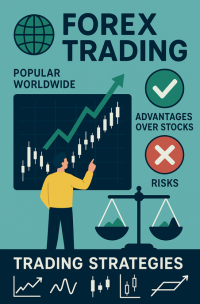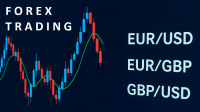Before entering the forex market, traders must equip themselves with the right knowledge and strategies to maximize their chances of success. In this article, we will analyze the key factors that every beginner forex trader should be aware of before starting.
Understanding the Forex Market
The forex market operates globally, allowing traders to exchange currencies in pairs such as EUR/USD, GBP/JPY, and USD/JPY. Unlike stock markets, which have fixed trading hours, forex trading is available 24 hours a day, five days a week. Prices fluctuate constantly due to factors such as economic events, geopolitical developments, and central bank policies. This high level of activity provides traders with ample opportunities but also exposes them to risks.
Risks Involved in Forex Trading
1. High Volatility
The forex market is known for its rapid price fluctuations, which can result in significant gains or losses within short periods. Traders must be prepared for sudden market movements driven by unexpected news events or economic data releases.
2. Leverage and Margin Trading
Forex brokers offer leverage, allowing traders to control larger positions with a small initial investment. For example, a broker offering 100:1 leverage allows a trader to control $100,000 worth of currency with only $1,000 in their account. While leverage can amplify profits, it can also lead to significant losses if not managed properly.
3. Market Manipulation and Scams
The forex industry has seen cases of fraudulent brokers and scams targeting beginner traders. Choosing a reputable broker that is regulated by financial authorities such as the Financial Conduct Authority (FCA), Commodity Futures Trading Commission (CFTC), or Australian Securities and Investments Commission (ASIC) is essential.
Key Trading Concepts Beginners Must Know
1. Pips and Spreads
A pip (percentage in point) is the smallest price movement in forex trading. Spreads refer to the difference between the bid and ask prices, representing the cost of entering a trade. Lower spreads are generally preferred as they reduce trading costs.
2. Lot Sizes
Forex trading involves different lot sizes: micro (1,000 units), mini (10,000 units), and standard (100,000 units). Choosing the appropriate lot size depends on the trader’s risk tolerance and account size.
3. Stop-Loss and Take-Profit Orders
Risk management is crucial in forex trading. Stop-loss orders help traders limit their losses by automatically closing a trade when the market moves against them. Take-profit orders lock in profits by closing trades once a predetermined target is reached.
Psychological Discipline and Continuous Learning
Trading psychology plays a vital role in a trader’s success. Emotional trading, driven by fear or greed, can lead to irrational decisions and unnecessary losses. Developing discipline, sticking to a trading plan, and continuously learning from mistakes are key attributes of successful traders.
Additionally, staying informed about economic news and geopolitical events can provide insights into market trends. Beginners should also practice trading with demo accounts before investing real money to test their strategies in a risk-free environment.
Most Commonly Used Forex Trading Platforms
- MetaTrader 4 (MT4) – Most popular platform for forex trading, offering advanced charting, indicators, and automated trading.
- MetaTrader 5 (MT5) – An upgraded version of MT4, with additional features like more timeframes and built-in economic calendars.
- cTrader – Known for its intuitive interface and advanced order execution capabilities.
- NinjaTrader – Commonly used for forex and futures trading, offering advanced analytics.
- TradingView – A web-based charting tool with social trading features, used by traders for technical analysis.
- ThinkorSwim (by TD Ameritrade) – A feature-rich platform with in-depth forex research and analysis.
Conclusion
Forex trading presents both opportunities and risks, making it essential for beginners to understand the market structure, risks, and key trading concepts before diving in. By managing risks effectively, maintaining discipline, and continuously learning, new traders can build a solid foundation for long-term success in the forex market.








